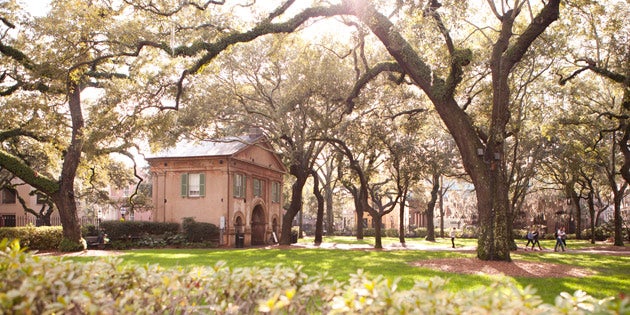At the College, we value our sense of community – our faculty, our students, our alumni and our parents form personalized, lifelong connections with the institution and one another. And, for many students, it starts before they even enroll.
Thanks to the Office of Admissions’ Cougar PAWWS (Parents & Alumni Working With Students) volunteer program, prospective students get a personalized admissions experience from the get-go. As advocates and ambassadors of the College, PAWWS volunteers (alumni, parents and friends) cover college fairs, host receptions and stay in touch with prospective students and their parents to spread the word about the College and welcome them into the College community.
“We’re letting them in on the secret that the College is a gem and also giving them that personal attention that the College is known for,” says Heather Chipley, director for admissions, visitor services and volunteer outreach, and director of the PAWWS program. “We’re planting that seed.”
Since Chipley and two fellow Parent Advisory Council (PAC) members came up with the idea for the program in 2001, it has expanded as a cross-campus collaboration between the Office of Admissions, the Office of Alumni Relations, the deans of the College’s schools, the Division of Institutional Advancement, among other entities.
But it’s the enthusiastic volunteers – mostly current parents and alumni – that make the biggest difference. As resources for students and their families to learn more about the College of Charleston experience, volunteers cover college fairs in their regions, visit and establish relationships with local high schools and host and attend regional send-off receptions and yield receptions, opening up their homes to prospective students.
EXPLORE: Learn more about Cougar PAWWS.
Held mostly in February and early March, the yield receptions attract anywhere from 10 to 100 accepted students who may or may not have made up their minds about where they want to go to school.
“This is an opportunity for newly accepted students who are on the fence about which school to attend to get anecdotal evidence from alumni, administrators, current parents, development officers and other campus partners about the College,” says Chipley. “And it really drives home the personal attention these students will continue to see when they get here.”
And that attention continues when students are accepted, as well. That’s when volunteers pick up the phone and make congratulatory calls.
“The congratulatory calls are really about making that personal contact to follow up with both the students and the parents,” says Chipley. “It brings more parents in and kicks off that engagement. It validates to them that sense of community that they’ll get at the College.”
And that is something they will value for many years to come.




